 The poppies I planted over my cats' graves.
The poppies I planted over my cats' graves. I've always thought of this part of the poppy as being tough and durable, like bone.
I've always thought of this part of the poppy as being tough and durable, like bone.Sylvia Plath wrote two poems about poppies, likening their blooms to mouths. "Poppies in July" is a terrifying poem in which she contemplates suicide:
Little poppies, little hell flames,
Do you do no harm?
You flicker. I cannot touch you
I put my hands among the flames. Nothing burns.
And it exhausts me to watch you
Flickering like that, wrinkly and clear red, like the skin of a mouth
A mouth just bloodied.
Little bloody skirts!
She then goes on to compare the flames of the poppies to the "fumes" she cannot touch: it's impossible not to think of how she died, by gas. I've often thought of the sad implications of that death, that she killed herself with a gas stove, a symbol of women's domesticity. It's widely believed she felt trapped in that life.
"Poppies in October" is a more hopeful poem. She writes of the blooms as "A gift, a love gift / Utterly unasked for / By a sky". Then, "O my God, what am I / That these late mouths should cry open / In a forest of frost, in a dawn of cornflowers." Her sense of awe here is so moving to me. It is as though she captures the soul crying out for love.
I took some photos of my poppies this year. Their blooms are so brief that, busy with other things--I often miss seeing them in all their glory.
As much as I love the blooms, I think I love them even more when the bloom sheds and the stem and seedpod stand in the garden. If the blooms are mouths, then, to me, the stems and seedpods are bones. I planted poppies in two places in my garden. The most prodigious poppies grow over the graves of my cats. The roots of the poppies feed on the bones of those cats, and I love these poppies the best.
Little poppies, little hell flames,
Do you do no harm?
You flicker. I cannot touch you
I put my hands among the flames. Nothing burns.
And it exhausts me to watch you
Flickering like that, wrinkly and clear red, like the skin of a mouth
A mouth just bloodied.
Little bloody skirts!
She then goes on to compare the flames of the poppies to the "fumes" she cannot touch: it's impossible not to think of how she died, by gas. I've often thought of the sad implications of that death, that she killed herself with a gas stove, a symbol of women's domesticity. It's widely believed she felt trapped in that life.
"Poppies in October" is a more hopeful poem. She writes of the blooms as "A gift, a love gift / Utterly unasked for / By a sky". Then, "O my God, what am I / That these late mouths should cry open / In a forest of frost, in a dawn of cornflowers." Her sense of awe here is so moving to me. It is as though she captures the soul crying out for love.
I took some photos of my poppies this year. Their blooms are so brief that, busy with other things--I often miss seeing them in all their glory.
As much as I love the blooms, I think I love them even more when the bloom sheds and the stem and seedpod stand in the garden. If the blooms are mouths, then, to me, the stems and seedpods are bones. I planted poppies in two places in my garden. The most prodigious poppies grow over the graves of my cats. The roots of the poppies feed on the bones of those cats, and I love these poppies the best.



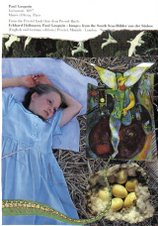


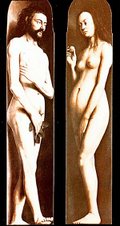

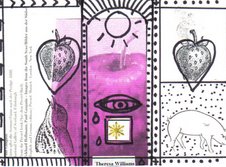
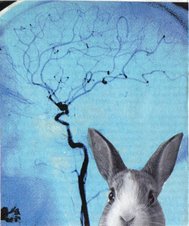
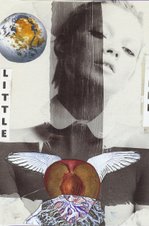
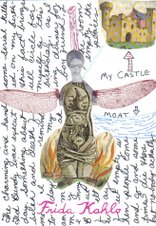
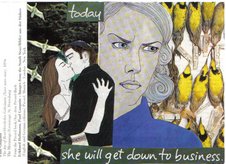

2 comments:
Love that the best poppies grow on your cats' graves. Aside from the chemistry, it seems rather spiritual don't you think? A little eerie and a little wonderful. They are one of my favorite flowers, and I'd planted some once, but they died. No cats, I guess. And that reminds me. My catnip didn't come up this year. Hmmmm. Maybe it went where the poppies went. Teagrapple
12 JUne 2007
A silver sky
ripe for the mirror.
you can not see yourself in this mirror
you can only see others
moreover, you can only see what others choose to expose.
Their houses, their boats, their sea-doos.
Birds skimming low over the water could
like as not
see them selves if they were to look down
as they skim low over the water
but they never do.
Rather they allow their reflections to chase them
quick and sharp over the still, glistening waters
while the bird's mind remains ever fixed on
food, or other birds, or escaping those damn noisy humans.
A dense forest impenetrable as a gaze.
Post a Comment